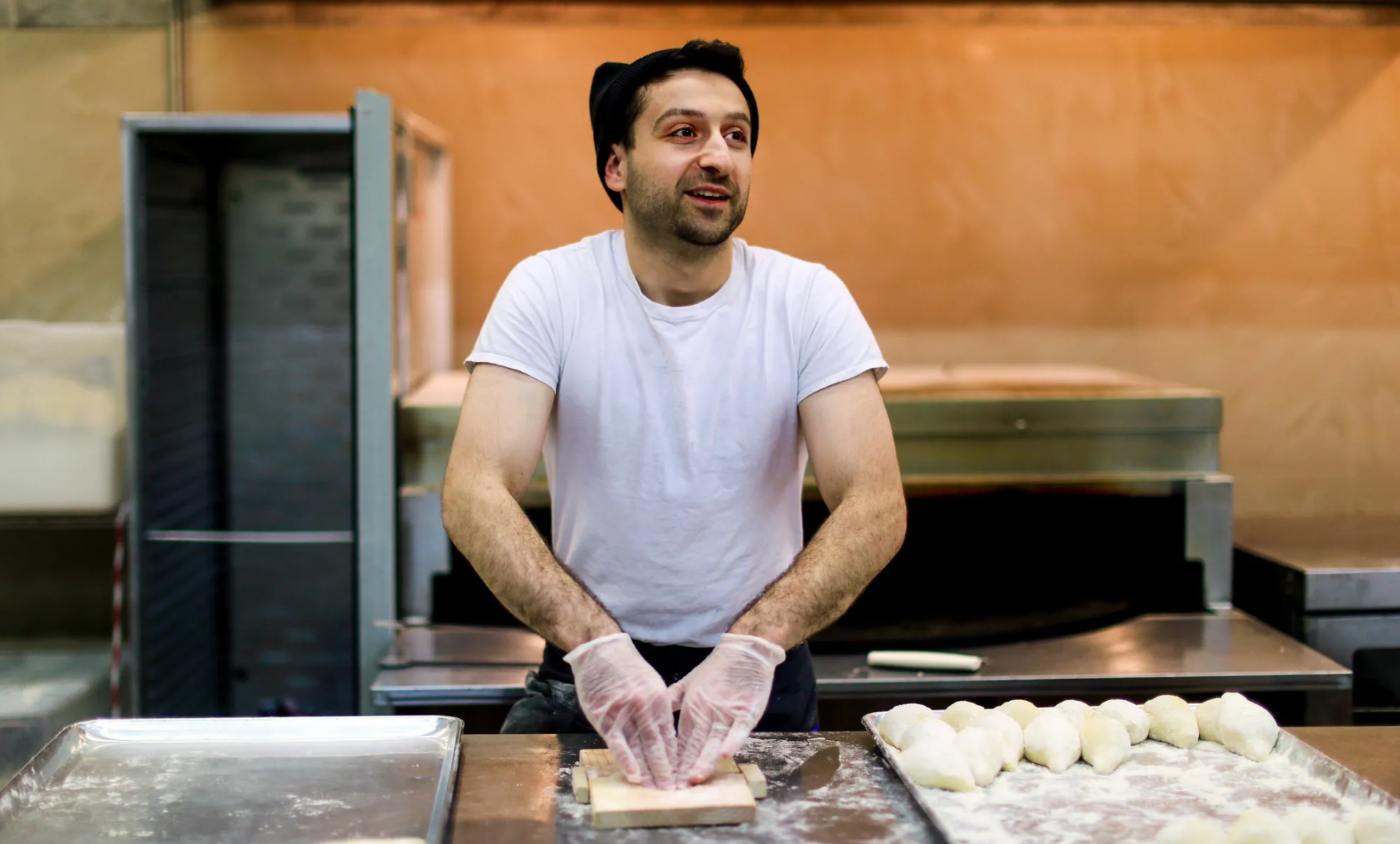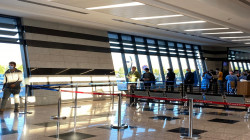Alida’s Bakery nourishes local Middle Eastern communities with bread and pastries that taste, and feel, like home

Shafaq News/ Nechirvan Zebari 5 years old, the third-youngest of eight children, when his Kurdish family fled Iraq and came to this country. His father had worked as a security guard for an American nonprofit in Iraq when Saddam Hussein began targeting those working with the United States. The company helped the family get visas, and eventually they settled in South Snohomish County.
Reported to be the largest ethnic group in the world without a state, Kurds have been fleeing Iraq and other Middle Eastern countries for decades. Zebari, now 29, became a registered nurse, a husband and the father of two. He says he feels blessed to be here, but he still feels the tug of his homeland. “The struggle, the amount of sacrifice that my family and all the Kurdish people went through, creates a sense of pride and makes me want to be part of them.”
He especially longed for the bread and the feeling of community that revolves around a local bakery. “In Kurdistan and Iraq, in the Middle East in general, a bakery plays a huge role in the lives of many families. Usually, you go get the fresh bread every single day.”
The breads and pastries available here didn’t seem quite the same. So, in 2017, while still working as a critical care nurse, he signed a five-year lease and opened Alida’s Bakery in the crook of an L-shaped strip mall on Southeast Everett Mall Way.
The first bread he attempted was naan, which is very popular in Iraq, but the clay oven was tricky, and he could produce only a small quantity. Pita turned out to be much easier to make in large quantities, while maintaining the quality he was after.
He adapted the family recipe his brother, Ali, and sister-in-law, Khalida, used to make pita at home. (Alida is a portmanteau of their two names.) The white and whole-wheat pita he sells comes in two shapes: round saoka and oval-shaped Iraqi samoon. The dough ferments for 12 hours to develop flavor. Because he forgoes preservatives, Zebari advises freezing the bread if it’s not consumed right away. I’ve found that a few minutes in the oven, right from the freezer, makes the breads as soft and fluffy as the day they were baked.
The daily bake still includes 12-inch naan ($4 for a four-pack). It’s the first bread to sell out every day. Pita is replenished throughout the day. Metro shelves hold packages of saoka ($3 for a five-pack) and samoon ($3.50 for a four-pack).
The glass case displays a colorful array of manakish, pita with toppings ($2 each, or 3 for $5). Current choices include za’atar, cheddar-jalapeno, feta-mozzarella and tomato-red pepper-coriander. In the Middle East, manakish are considered breakfast food, according to Zebari, and often paired with eggs, olives, beans or yogurt. (He makes an ultrarich, super-creamy yogurt, too.)
Among pastries, you’ll find very good baklava ($1.50 each) made with finely chopped nuts (80% pistachio, 20% walnuts) tucked between the crackling phyllo layers. Zebari’s wife, Megan Zebari, makes the baklava. She also manages the bakery’s lively Instagram account.
Do pick up a bag of klecha ($7 a dozen), often called Iraq’s national cookie. The sesame-speckled spirals of tender dough filled with cardamom-spiked puréed dates are excellent companions for coffee or tea. Duddly ($6), sometimes spelled “datil” (derived from “tatli,” the Turkish word for sweet), resemble bite-size churros. Deep-fried a dark, golden brown, they stay improbably crisp even when soaked in syrup, and, like most fried dough, they are an extremely compelling treat.
Wedges of basbousa ($3), a coconut-dusted semolina cake with a delicate crumb and a creamy layer of ricotta and mozzarella running through it, are delightful. Konafa ($2) are small, round cakes similar to basbousa but crowned with crushed pistachio and nestled in crispy phyllo threads. You’ll find tiramisu at Alida’s, too, but mindful of their Muslim clientele, they make it sans alcohol.
Zebari describes himself as “the type of person who starts things but always gave up on them.” Committing to a five-year lease was to some extent an effort “to change that part of me that quits too often.” But juggling two jobs left him little time for sleep and stretched him beyond his physical limit. Even before the arrival of the pandemic — during which he found himself holding iPads in the hospital for dying COVID patients so their families could say goodbye — he was experiencing panic attacks. One landed him in the emergency room, where doctors spent several hours trying to calm his heart, which was racing at more than 200 beats per minute.
Last year, he quit nursing entirely, even though he loved it. It was hard to give up the cushion of health care and a 401(k), and ignore what everyone told him was “the safe course.” But, as he told his supervisor when he gave notice, “I think my bakery is good enough to live off of.”
He misses nursing but has no regrets. He’s discovered his bread nurtures people, too. “I feel almost the same satisfaction when a customer tells me how much they love the bread.” One customer said her autistic son loves Alida’s bread so much, just seeing the package, which features a cartoon image of an apron-clad Zebari on the label, makes him happy.
Several Middle Eastern communities intersect at Alida’s Bakery. “Without the Sudanese community, we’d never have survived,” Zebari says. They helped spread the word early on. He also has a large Jewish clientele in Bellevue. He considers it a huge compliment when customers say his pita is just like what they get back home. Some tell him it’s even better.
Zebari would like to open a Middle Eastern breakfast cafe one day. For now, he’s working to expand his wholesale business. A few area markets already carry his breads: Imran’s Market in Everett, Byblos Mini Market, and JD’s Market in Lynnwood, Goodies Mediterranean Market in Lake City, and D K Market in Renton.
For everything else, set your GPS for Alida’s Bakery, open Friday through Tuesday from 11 a.m. to 6 p.m. It’s worth seeking out.
(The Seattle Times)


